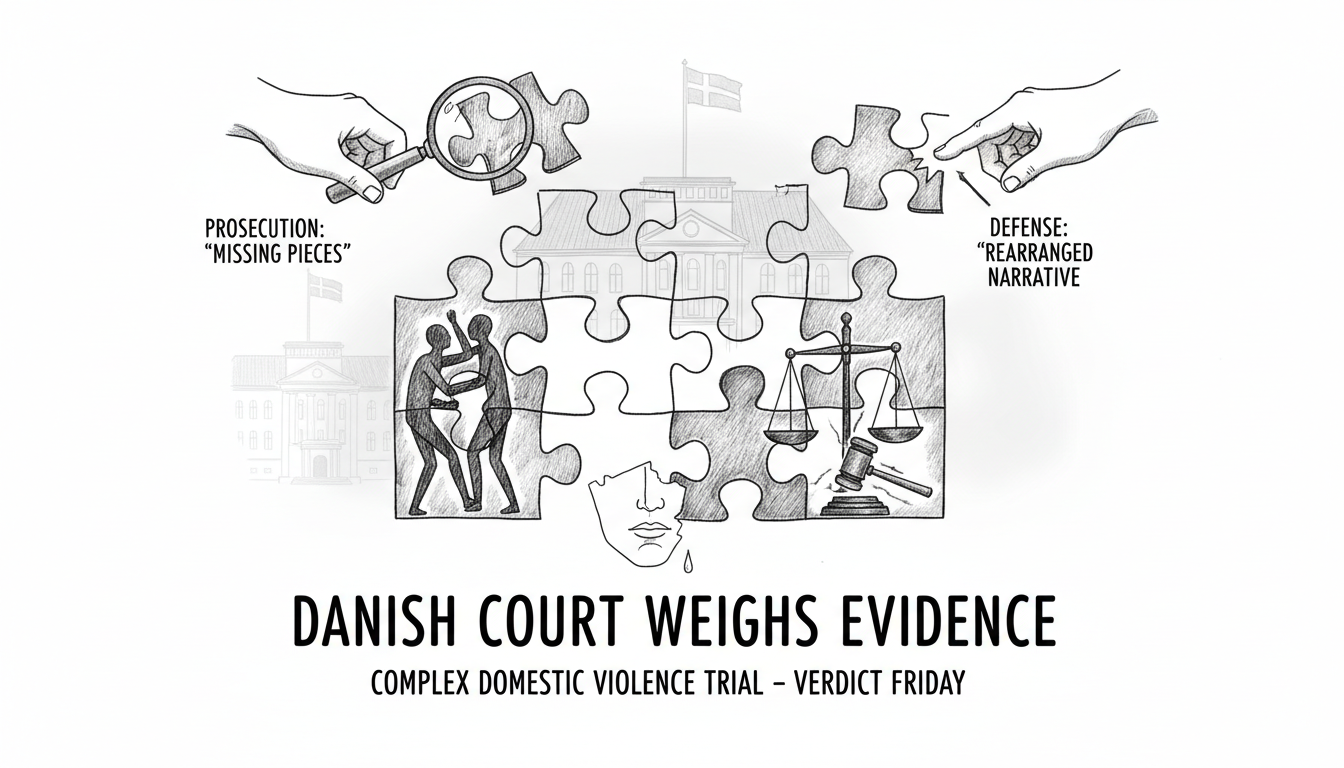A Copenhagen courtroom became the stage for final arguments in a disturbing criminal case this week. Prosecutors and defense attorneys presented their closing statements about a 31-year-old man facing multiple serious charges. The trial involves allegations spanning from vandalism to three separate rape accusations against his former partner. Both legal teams used puzzle metaphors to describe how jurors should evaluate the evidence in this complex Danish legal proceeding.
Prosecutor Michelle Munch expressed complete confidence in the evidence pattern. She told the court they could clearly see the picture emerging from available proof. The case involves serious domestic violence allegations including physical assault, psychological abuse, threats, and stalking. Some charges relate to continuing Bandidos motorcycle club activities after its temporary ban. The defendant has admitted to stalking, some threats, and certain violence incidents. But he denies the rape accusations and psychological violence claims.
His defense attorney Miriam Sigsgaard raised concerns about witness reliability and investigation quality. She noted several witnesses had personal relationships with the accuser. This included her best friend and former boyfriend. The defense suggested these connections could color their testimony. She also criticized police investigative methods during cross-examination. Sigsgaard revealed she found relevant Snapchat messages that initial police work missed. These messages came from her own review of the defendant's phone.
This case highlights broader questions about Denmark's legal system and domestic violence response. Danish courts face ongoing challenges handling complex relationship cases. They must balance witness credibility against thorough evidence collection. The Danish welfare system typically provides strong support services for violence victims. But legal outcomes still depend heavily on evidence quality and witness testimony consistency.
The trial's outcome could influence future approaches to similar cases across Danish municipalities. Copenhagen integration policies increasingly address domestic violence within immigrant communities. But this case involves Danish citizens, showing domestic violence affects all society segments. Social centers throughout Denmark work with legal authorities on victim protection and perpetrator rehabilitation.
Statistics show integration challenges sometimes correlate with higher domestic violence rates. But this case demonstrates that relationship violence transcends cultural backgrounds. Denmark's social policy aims to protect all residents equally through its legal framework. The court's decision will come Friday when jurors deliver their verdict. Their judgment will determine whether the puzzle pieces form a clear picture of guilt or leave reasonable doubt requiring acquittal.
The case represents another test for Denmark's legal system in handling sensitive domestic violence matters. It comes amid ongoing national discussions about improving support systems and legal protections for violence victims. The outcome may influence how similar cases are investigated and prosecuted across the country's integrated social and legal frameworks.

